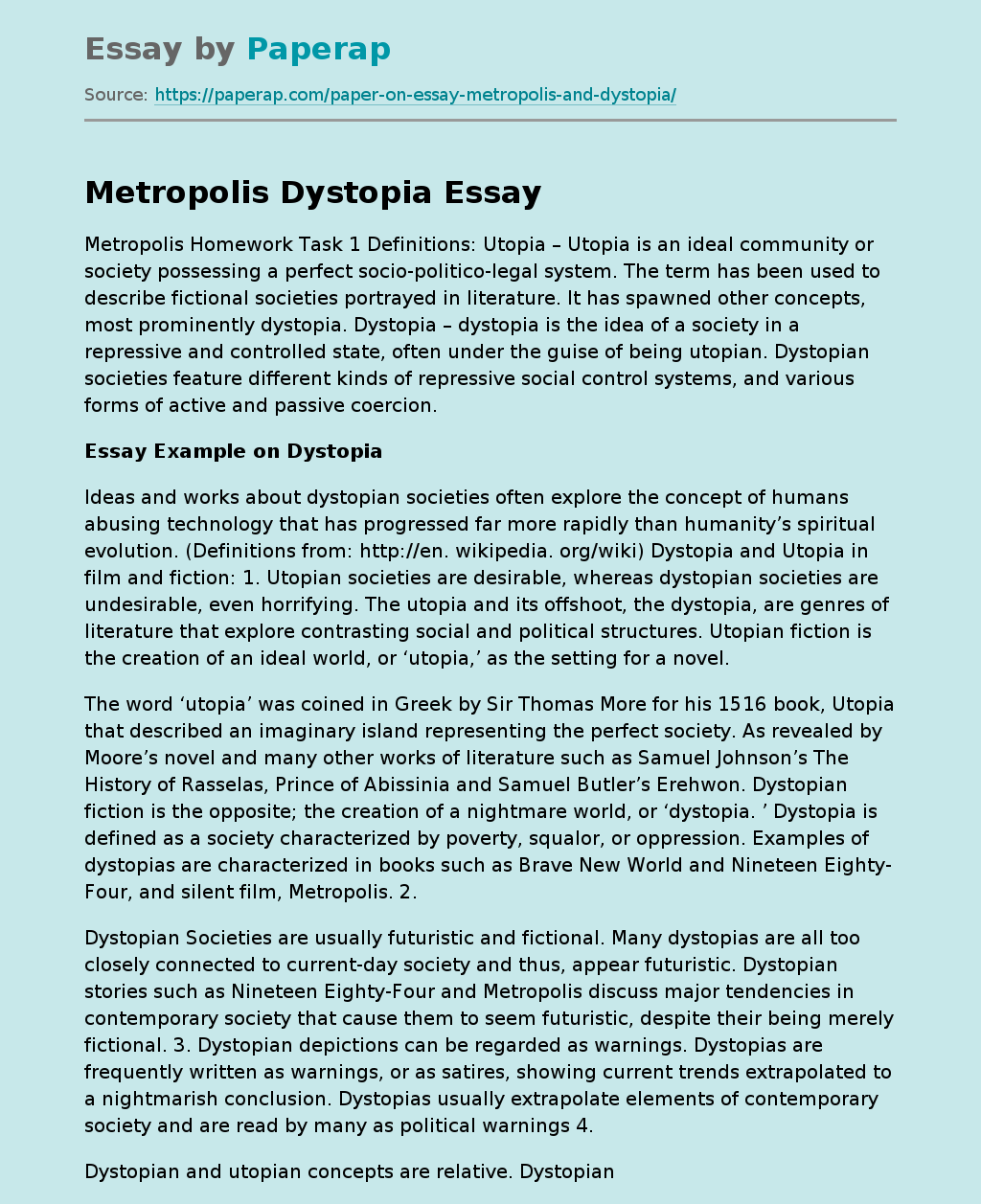Metropolis Dystopia
Metropolis Homework Task 1 Definitions: Utopia – Utopia is an ideal community or society possessing a perfect socio-politico-legal system. The term has been used to describe fictional societies portrayed in literature. It has spawned other concepts, most prominently dystopia. Dystopia – dystopia is the idea of a society in a repressive and controlled state, often under the guise of being utopian. Dystopian societies feature different kinds of repressive social control systems, and various forms of active and passive coercion.
Essay Example on Dystopia
Ideas and works about dystopian societies often explore the concept of humans abusing technology that has progressed far more rapidly than humanity’s spiritual evolution.
(Definitions from: http://en. wikipedia. org/wiki) Dystopia and Utopia in film and fiction: 1. Utopian societies are desirable, whereas dystopian societies are undesirable, even horrifying. The utopia and its offshoot, the dystopia, are genres of literature that explore contrasting social and political structures. Utopian fiction is the creation of an ideal world, or ‘utopia,’ as the setting for a novel.
The word ‘utopia’ was coined in Greek by Sir Thomas More for his 1516 book, Utopia that described an imaginary island representing the perfect society. As revealed by Moore’s novel and many other works of literature such as Samuel Johnson’s The History of Rasselas, Prince of Abissinia and Samuel Butler’s Erehwon. Dystopian fiction is the opposite; the creation of a nightmare world, or ‘dystopia. ’ Dystopia is defined as a society characterized by poverty, squalor, or oppression. Examples of dystopias are characterized in books such as Brave New World and Nineteen Eighty-Four, and silent film, Metropolis.
2.
Dystopian Societies are usually futuristic and fictional. Many dystopias are all too closely connected to current-day society and thus, appear futuristic. Dystopian stories such as Nineteen Eighty-Four and Metropolis discuss major tendencies in contemporary society that cause them to seem futuristic, despite their being merely fictional. 3. Dystopian depictions can be regarded as warnings. Dystopias are frequently written as warnings, or as satires, showing current trends extrapolated to a nightmarish conclusion. Dystopias usually extrapolate elements of contemporary society and are read by many as political warnings 4.
Dystopian and utopian concepts are relative. Dystopian and utopian concepts are relative in fiction because often, (in Metropolis for instance) though the dystopian society is in a repressive and controlled state, it is under the guise of being utopian. 5. Dystopian fiction comments about our own society. Literary dystopia often draws from elements of contemporary society. Not only does it therefore appear futuristic, but it comments on the direction of society today and confronts readers with the dystopian characteristics of our modern world.
Metropolis Dystopia. (2019, Nov 27). Retrieved from https://paperap.com/paper-on-essay-metropolis-and-dystopia/

